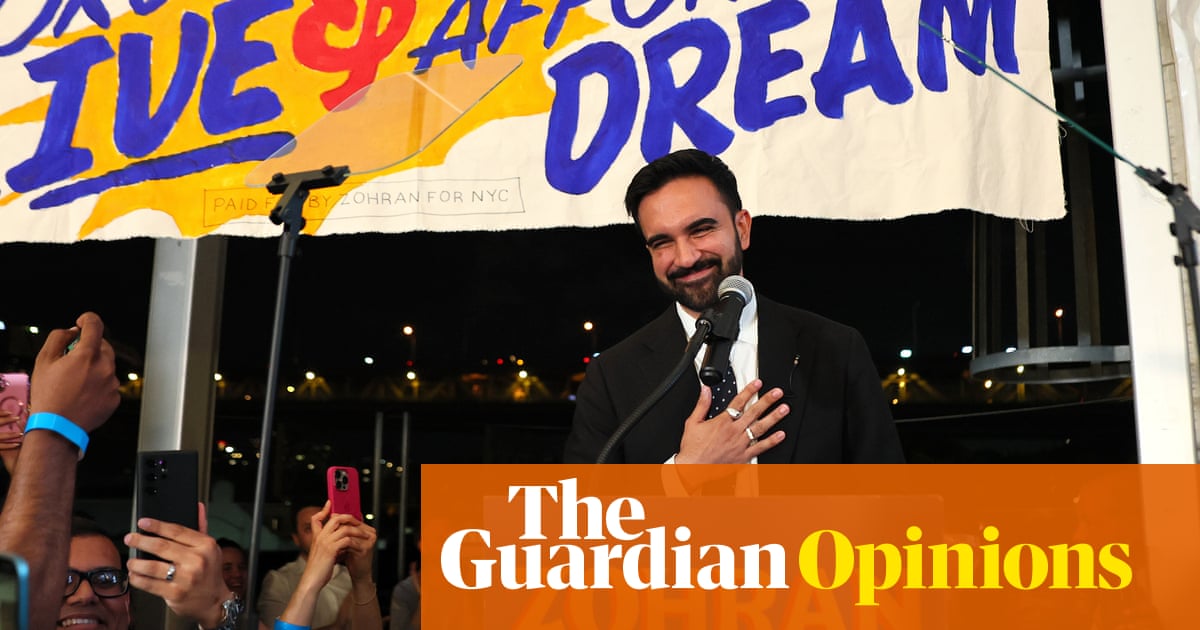Zohran Mamdani: A Political Stormbreak in New York
A Tale of Two Cities
Zohran Mamdani’s recent victory in New York’s mayoral primary marks a significant moment in the political landscape of the United States. On one hand, we witness a young man espousing progressive ideals triumphing against entrenched political elites backed by substantial funding and political networks. On the other hand, his win has unveiled an alarming wave of racism and Islamophobia, positioning him as a figure of contempt for certain factions within American society. This duality—a hopeful progressive against a backdrop of persistent prejudice—presents a complex tableau of American sentiment.
The Backlash
Following Mamdani’s success, an appalling surge of anti-Muslim vitriol flooded social media and mainstream discourse. Public figures, politicians, and influencers seemed to collectively spiral into a frenzy, framing him as a symbolic threat. Instances of blatant racism included Republican congressman Andy Ogles, who derogatorily referred to him as “little Muhammad” while pushing for his denaturalization and deportation. Such vehement attacks included labeling him as a “Hamas terrorist sympathiser,” painting a picture of an imagined radical while failing to engage with the substance of Mamdani’s political agenda.
The Reaction from the Establishment
What stands out amidst this chaos is the muted response from senior figures in Mamdani’s own party. Prominent Democrats, like Chuck Schumer and Hakeem Jeffries, have largely remained silent in the face of these shameful assaults. This silence signals a dangerous normalization of anti-Muslim sentiment, which perpetuates further discrimination and shifts the Overton window of acceptable political discourse. The absence of public condemnation from key political leaders underscores a systemic issue that allows such hate to fester unchallenged.
Bearing the Burden of Intersectionality
Mamdani represents more than just a challenge to mainstream political orthodoxy; he embodies the struggle of multiple marginalized identities. His unwillingness to conform to conventional political expectations—especially around Israeli-Palestinian relations—has made him a target. While many politicians might temper their views to gain acceptance, Mamdani’s staunch stance on economic justice and international human rights has drawn both admiration and ire. The backlash he faces is not solely rooted in his Muslim identity; it is also shaped by his progressive stance on contentious issues, placing him at the crossroads of several intersecting identities.
Communicating a Complex Agenda
Despite the wave of prejudice, Mamdani has diligently attempted to clarify his positions. He has consistently condemned antisemitism while simultaneously advocating for Palestinian rights. He emphasizes the importance of providing affordable food, childcare, and housing to New Yorkers, addressing systemic inequalities head-on. This balancing act demonstrates his awareness of the need for coalitional politics, aiming to unite disparate groups while standing firm on his beliefs.
The Weight of Stereotypes
Mamdani’s case also highlights the broader conduct of public discourse, where Muslim politicians often grapple with the specter of stereotype. His candidacy challenges the expectation that individuals of his background must adhere to a specific, sanitized version of identity politics. The media and political discourse often hinge on whether a Muslim politician can "prove" their loyalty to American values; a construct that burdens them with an impossible task.
A Reflection of Wider Prejudices
The fervor surrounding Mamdani’s victory reflects the pervasive insecurities that many Americans experience regarding identity and representation. His critics fear that his triumph signifies a broader shift towards inclusivity in political power. The intensity of the backlash against him serves as a measure of how deeply ingrained these prejudices are, revealing a larger discomfort in addressing issues of race, religion, and socioeconomic justice.
Unpacking the Role of Media
Media narratives often play a significant role in shaping public perception of political figures. In Mamdani’s case, coverage is rife with distortions that obscure his intentions. The conflation of his progressive stances with radical Islamism not only diminishes the complexity of his political identity but also simplifies public understanding of broader socio-political issues. As misconceptions proliferate, they create barriers to meaningful dialogue about the real challenges facing New Yorkers.
The Long Road Ahead
As Mamdani prepares to navigate a political terrain fraught with challenges, it is clear that his journey will be emblematic of larger societal battles. The resistance he faces is indicative of a struggle that extends beyond individual identity, confronting systemic inequalities embedded within American political structures. The political establishment’s response—or lack thereof—will likely dictate whether Mamdani becomes a symbol of change or a cautionary tale of consequence for those who challenge the status quo.
In this unfolding narrative, the question remains: can the political landscape evolve to embrace diverse identities and perspectives, or will the forces of division prevail? The answer may lie in how society engages with Mamdani’s story and the truths it challenges.


